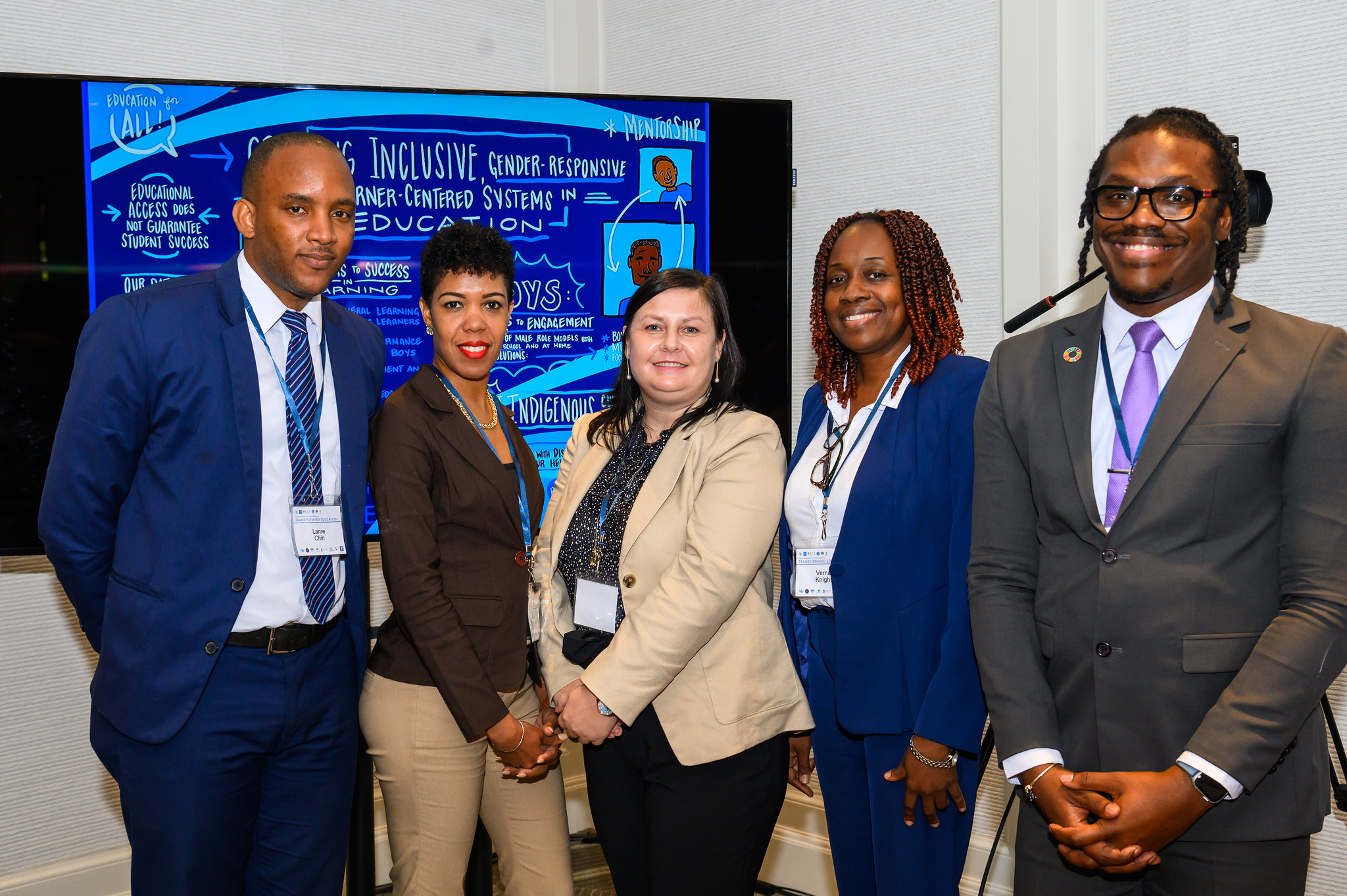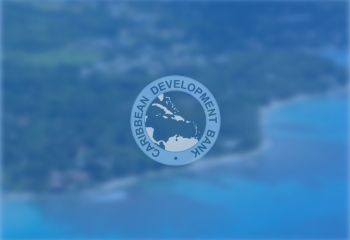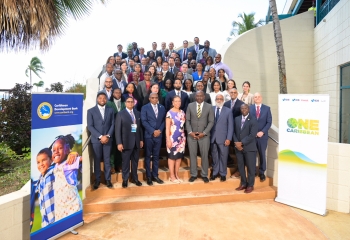Boys Need Targeted Mentorship, Inclusive Engagement, Skills Training to Help Close Gender Gap in Caribbean Education Say Experts

Experts have called for targeted mentorship for boys, more inclusive teaching, skills, and entrepreneurship training, and encouraged stronger home-school partnerships to address the widening education gap in the Caribbean, where boys are twice as likely as girls to repeat grades or drop out at primary and secondary levels.
Boys in the region face disproportionate challenges at all stages of education. According to data from UNESCO, at the tertiary level, there are 124 women enrolled for every 100 men in Latin America and the Caribbean. This, compared to the global average of 113 women for every 100 men.
An urgent call for action to help shift the dynamics came during the keynote session Education for All: Creating Inclusive, Gender-responsive and Learner-centred Systems in Education at the Regional Symposium and Policy Dialogue on Transforming Education, held in the Cayman Islands in October 2024. Panel experts identified various barriers that contribute to boys’ disengagement, such as traditional teaching methods that fail to engage them, a shortage of male teachers and role models, and social pressures for young men to become prematurely breadwinners due to absent fathers.
Dr Verna Knight, Coordinator B.Ed Programme, and Coordinator Eastern Caribbean Joint Board of Teacher Education, The University of the West Indies Cave Hill, highlighted critical insights for achieving inclusive, gender-responsive, education, emphasising that while essential, access to education alone does not ensure academic success.
“In today's 21st-century educational era, we have learned that educational access cannot be assumed to mean educational success for every child. In many classrooms across developing countries, one-third of our students are known to be physically present but disengaged from learning. They are in school but achieving no greater academic success than the child who is out of school,” Dr Knight said.
Mr. Lanre Chin, Mentorship Officer at the Jamaica Teaching Council (JTC), used Jamaica as a case study, pointing out that while approximately 20% of the national budget is spent on education, disengagement particularly among boys has resulted in high levels of incarceration.
“Instead of solely focusing on academic performance, the system can pivot towards more practical skills. We are in an environment with several needs. The system should be creating entrepreneurs not workers, so the mindset of the boys needs to be shifted. This is why they’re not being engaged,” Mr. Chin said.
He added that to help increase engagement among boys and help them build practical skills, the JTC has employed methods such as building mentorship networks, skills training, extracurricular activities, and income-generating activities to help them build practical skills
The panel of experts also recommended strengthened learning supports across pre-primary, primary, and secondary levels, universal screening at key entry points for early identification of learning needs, providing teachers with data from continuous assessments to help them design and implement customised in-class support, guided by Universal Design for Learning, and building strong partnerships between schools and families to support learning outside the classroom.
Other recommendations include public campaigns to promote active parental involvement, mandatory mentorship programmes for new teachers and ongoing professional development for teachers to address the diverse needs of learners, and national data collection to allow education trends to be tracked over time to guide policymakers to make evidence-based policy reforms.
The Regional Symposium and Policy Dialogue on Transforming Education brought together experts and policymakers to shape the future of Caribbean education and develop actionable steps to achieve sustainable, gender-responsive, and learner-centered educational reform. Organised in partnership with the Caribbean Development Bank in collaboration with the CARICOM Secretariat, OECS Commission, The University of the West Indies, and the Ministry of Education in the Cayman Islands.


